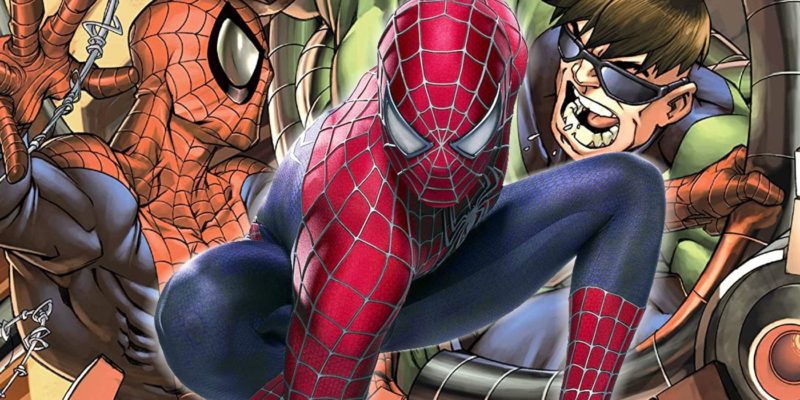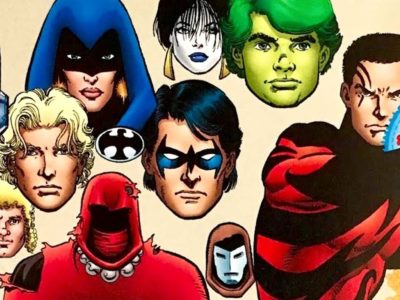
[ad_1]
Comic book sales are down and the Big Two are struggling to keep readers’ attention even with multiple major crossover events, and Hollywood might be to blame.
Comic books have come a long way over the years, with the most obvious indicator of this being the surge of superhero movies that have taken over Hollywood over the past twenty years. Between the Marvel Cinematic Universe, DC Extended Universe, and countless small screen adaptations of indie darlings, it might seem like things have never been better for the comic book corner of pop culture. Unfortunately, declining sales numbers and a slew of ultimately lackluster events tell a different story for the industry, and there are plenty of signs that point to the silver screen as the source of the problem.
Hollywood’s love affair with superheroes has been around for nearly as long as comic books have been in the public eye. From as far back as the early 1950s, filmmakers have strived to capture the impossible adventures of fans’ favorite heroes on screen. Different decades had different tastes all the way from campy adventures to gritty action thrillers, but most forays into comic book territory were treated less than seriously by fans and critics alike, at least not until the early 2000’s. This era brought with it the birth of the MCU, and its success quickly inspired DC to follow suit. Before long, streaming giants like Netflix and HBO were producing their own original shows, while industry titan Disney set its sights on bringing Marvel under the House of Mouse’s ever expanding roof.
Of course, not every new movie or TV show is created equal, and not every series is meant to last. While the successes generally outweighed the failures in regards to comic book adaptations, a constant stream of new releases ensured that some properties were doomed to fail. Shakeups between those both behind and in front of the cameras didn’t take long to crop up, and while those issues are an indelible part of any creative industry, fans had no trouble spotting the cracks that had formed because of them. 2017’s Justice League may have been the most prime example of this, with extensive reshoots and a meandering production period leading fans to spend years clamoring for what would eventually be released as the Snyder Cut. Worse still, the silver and small screens weren’t the only places that left fans wanting.
As the superhero genre soared on screen, publishers felt a rush of new and returning readers as comics sales initially skyrocketed alongside theater tickets. The wave of success in the industry was a boon for writers and artists with big ideas in mind, as well as for the characters who had finally found their time to shine. While the 80’s and 90’s had become oversaturated with various titles, the mid and late 2000’s saw one major event after another change the landscapes of reader’s favorite comic book universes. Breakout hits like Civil War and Flashpoint were received well enough that they directly inspired events in the MCU and Arrowverse, but readers proved that they could only endure so many groundbreaking crossovers before fatigue began setting in. Now it seems as though industry leaders are struggling to retain readership even on some of their most historically successful titles despite overall industry sales rising higher than ever in 2020, and a further volley of concurrently running crossover events aren’t making things any better.
The picture may be bleak, but this doesn’t mean that Hollywood has killed comics. Despite any concerns, the rise to prominence of comic book adaptations has only helped the comic book industry in the long run. Readership on some Big Two superhero titles might be down as evidenced by ICv2 analyst and founder Milton Griepp’s 2019 analysis, but there is no shortage of indie hits such as Stray Dogs and Something Is Killing the Children continue to explode in popularity. Considering the latter of the two is up for its very own rendition of the Netflix treatment, it would appear that the superhero movie boom expanded the source material into something far greater than one isolated corner of pop culture. Now, comic books have become a defining part of pop culture as a whole, veritably eclipsing other mediums in the public eye. This has certainly been helped by the superhero movie boom of the 2000’s, though readers have made it clear that masked vigilantes in tights and capes are far from the only characters that have captured their attention.
Genre comics from creators like Joe Hill and James Tynion IV have exploded in popularity, while all-star scribes such as Al Ewing and Donny Cates have take fan-favorite superheroes like the Incredible Hulk and Venom and twisted their worlds into something more closely resembling a horror story than any stereotypically heroic adventures, receiving both the support of fans and critics in the process. The likelihood that events such as Immortal Hulk or King in Black will ever take to the silver screen is small, but it is the successful bending of genres which stands out as against a sea of brightly lit titles. This coupled with the continued success of non-superhero comic book adaptations from October Faction to Locke & Key gives hope that these darker, less high-flying tales will inspire production houses and directors to delve further into the world of comics that exists beyond star-spangled tights.
Simply put, comic book story doesn’t have to be a household name to get its shot at live action anymore, because “comic book” and “superhero” are no longer four letter words in the offices of the studios that produce them. And with the film industry now embracing them as their own established genre, comic books themselves have nothing to worry about when it comes to being a dying industry.
About The Author
[ad_2]





